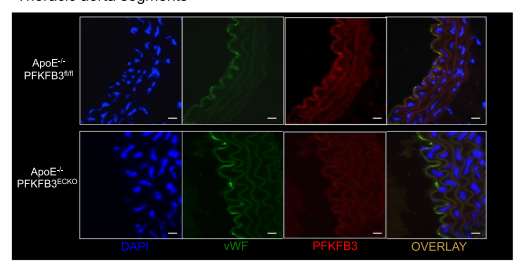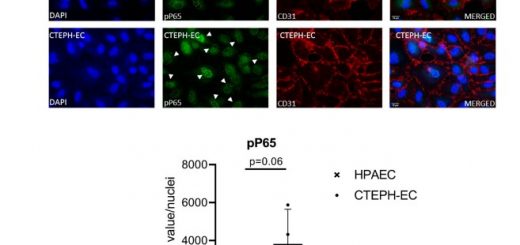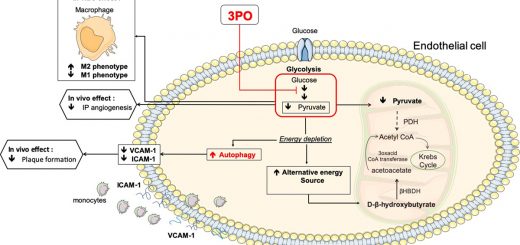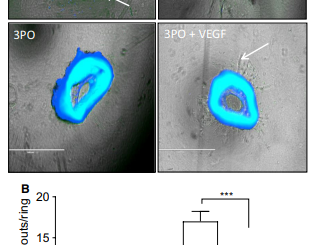PFKFB3 gene deletion in endothelial cells inhibits intraplaque
angiogenesis and lesion formation in a murine model of venous
bypass grafting

Vein grafting is a frequently used surgical intervention for cardiac revascularization. However, vein grafts display regions with intraplaque (IP) angiogenesis, which promotes atherogenesis and formation of unstable plaques. Graft neovessels are mainly composed of endothelial cells (ECs) that largely depend on glycolysis for migration and proliferation. In the present study, we aimed to investigate whether loss of the glycolytic flux enzyme phosphofructokinase-2/fructose-2,6-bisphosphatase 3 (PFKFB3) in ECs inhibits IP angiogenesis and as such prevents unstable plaque formation. To this end, apolipoprotein E deficient ( ApoE−/−) mice were backcrossed to a previously generated PFKFB3fl/ fl Cdh5iCre mouse strain. Animals were
injected with either corn oil ( ApoE−/−PFKFB3fl/fl) or tamoxifen ( ApoE−/−PFKFB3ECKO), and were fed a western-type diet for 4 weeks prior to vein grafting. Hereafter, mice received a western diet for an additional 28 days and were then sacrificed for graft assessment. Size and thickness of vein graft lesions decreased by 35 and 32%, respectively, in ApoE−/− PFKFB3ECKO mice compared to controls, while stenosis diminished by 23%. Moreover, vein graft lesions in ApoE−/− PFKFB3ECKO mice showed a significant reduction in macrophage infiltration (29%), number of neovessels (62%), and hemorrhages (86%). ECspecific PFKFB3 deletion did not show obvious adverse effects or changes in general metabolism. Interestingly, RT-PCR showed an increased M2 macrophage signature in vein grafts from ApoE−/− PFKFB3ECKO mice. Altogether, EC-specific
PFKFB3 gene deletion leads to a significant reduction in lesion size, IP angiogenesis, and hemorrhagic complications in vein grafts. This study demonstrates that inhibition of endothelial glycolysis is a promising therapeutic strategy to slow down plaque progression.










